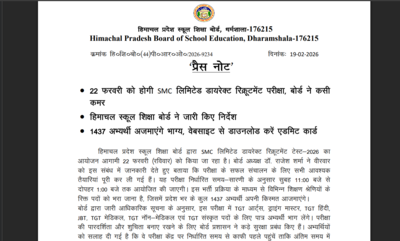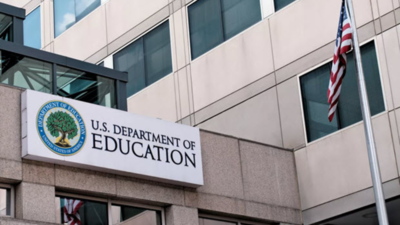Trump withholds $7 billion in US school funding, leaving 1.4 million students at risk

The Trump administration has abruptly withheld nearly $7 billion in federal education funding, a move that threatens to disrupt critical services for millions of students across the United States. The funding, previously approved by Congress and signed into law by President Trump in March, supports a range of programs including after-school care, summer enrichment, English language support, teacher training, and mental health services.In a notification sent to state education agencies, the US Department of Education stated the funds would not be released as expected, citing a vague review process with no timeline for resolution. As reported by The New York Times, the administration stated only that it was “committed to ensuring taxpayer resources are spent in accordance with the president’s priorities.” The decision has left school districts scrambling for contingency plans just weeks before the new academic year begins.Programs supporting millions of students face immediate uncertaintyThe sudden funding freeze affects multiple federally backed programs that have long supported vulnerable student populations. Among them is the 21st Century Community Learning Centers initiative, which provides after-school and summer programs for low-income students. According to The New York Times, Jodi Grant, executive director of the Afterschool Alliance, estimated that this program alone supports 1.4 million students — about 20% of all children enrolled in after-school programs nationwide.“These dollars are essential,” Grant said, adding that the freeze is “catastrophic” for families who rely on consistent programming for childcare and academic support. In low-income districts like Umatilla, Oregon, Superintendent Heidi Sipe said that without these funds, she has had to warn parents to prepare for canceled programs, even though “there is no YMCA or similar alternative in our community,” as quoted by The New York Times.Impact on non-English speakers and teacher supportThe withheld funds also include money designated for supporting English learners and their families. Many school districts use this funding to train teachers, hire translators, and ensure access to school services. Ana DeGenna, superintendent in Oxnard, California, told The New York Times that these programs are often the only link between immigrant families and the school system. “Without this outreach, families who do not speak English could be cut off,” she said.Another key affected program is the Student Support and Academic Enrichment grant, a bipartisan initiative in place for a decade. It funds school technology, mental health services, and staff training.Potential legal challenges and political falloutThe decision has sparked sharp criticism from education advocates, Democratic lawmakers, and unions. Randi Weingarten, president of the American Federation of Teachers, called the move “lawless,” stating that the funding was appropriated by Congress and cannot be withheld without legal cause, as quoted by The New York Times.Russell Vought, Director of the White House Office of Management and Budget, hinted at a potential rescission — a formal request to cancel funds — which, under federal law, could freeze the money until it expires, even without Congressional approval. “No decision has been made,” Vought stated during a Senate hearing, according to The New York Times.Senator Patty Murray, a leading Democrat on the Senate Appropriations Committee, warned that each day of delay forces school districts to make painful decisions about staffing and services. “They’re forced to worry about layoffs instead of how to help kids succeed,” she said, as reported by The New York Times.School districts brace for chaos as deadlines approachIn Omaha, Nebraska, Nicole Everingham, who helps coordinate after-school programming for 42 public schools, told The New York Times that staffing decisions must be made weeks before school starts. A delay, even if temporary, could lead to chaos for working parents and students who rely on after-school supervision. “It completely puts us in flux,” she said, adding that fewer staff means fewer available slots for students.Unless reversed, the freeze could lead to broad service cuts, staffing reductions, and learning disruptions nationwide. With school budgets already under pressure, education leaders are calling for urgent action to release the funds before long-term damage is done.






